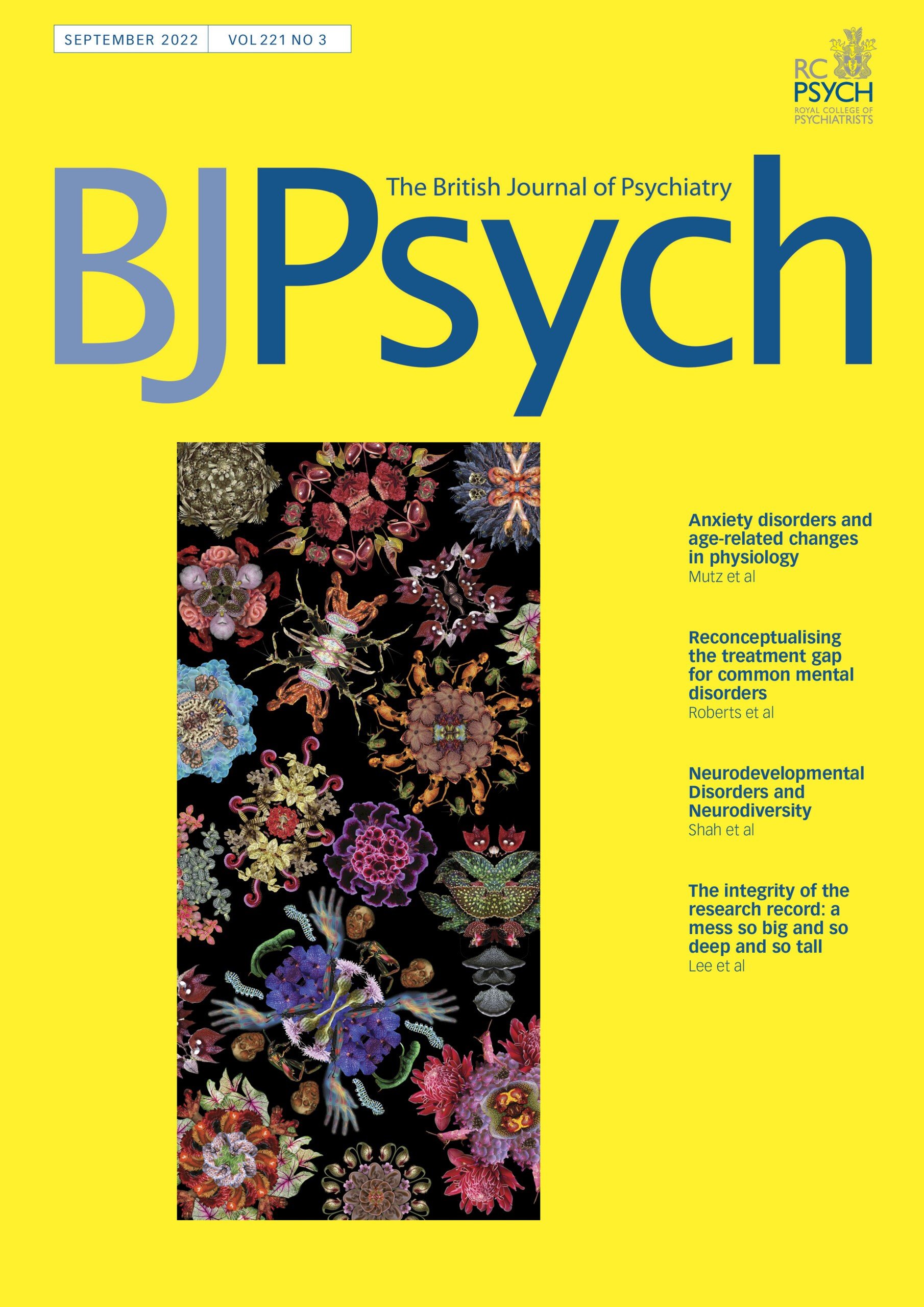September 2022
/Excerpt below from the September 2022 Kaleidoscope column in The British Journal of Psychiatry (BJPsych). You can read the full column for free here
Mindfulness. We've debated how much is hype on a recent Kaleidoscope Live webinar,1 so our eyes naturally turned to a very large trialReference Kuyken, Ball, Crane, Ganguli, Jones and Montero-Marin2 of school-based mindfulness training (SBMT) to prevent adolescent mental ill health. Eighty-four UK secondary schools (N = 8376 students aged 11–13 years) that provided standard social–emotional learning were recruited and randomised in a clustered 1:1 fashion to continue ‘treatment as usual’ (TAU) or implement SBMT. Schools were stratified by size, quality, type, socioeconomic deprivation levels and geographical region. Depression risk, social/emotional functioning and student well-being were assessed at baseline, pre- and post-intervention, and at a 1 year follow-up point. The authors explored hypothesised moderators of implementation and impact, with SBMT comprising ten lessons of psychoeducation and mindfulness practices. The SBMT group had worse outcomes than the TAU group, both post-intervention and at the 1 year follow-up point, and the greater the SBMT ‘dose’ and greater underlying risk of mental illness, the worse this was. The authors correctly point out that not only does the model seem not to work, it risks causing harm. This work is part of a series of recent publications as part of the My Resilience in Adolescence (MYRIAD) trial, and some of the data do support positive aspects of mindfulness in reducing teacher burnout in the short-term. Naturally, one must be circumspect in generalising this to other populations and contexts, but it adds to the growing body of literature demonstrating that mindfulness must not be seen as a panacea for all mental suffering, and in some circumstances may actually prove harmful. The focus on interventions in adolescence, and on depression, which has the largest health impact across the lifespan, is appropriate; the challenge undoubtedly remains how we tailor interventions to the people most likely to benefit. Unfortunately, for those of us working in healthcare, societal aspects of deprivation and inequality are still some of the biggest determinants of mental health.
Full text: Tracy, D., Joyce, D., Albertson, D., & Shergill, S. (2022). Kaleidoscope. The British Journal of Psychiatry, 221(3), 585-586. doi:10.1192/bjp.2022.106


